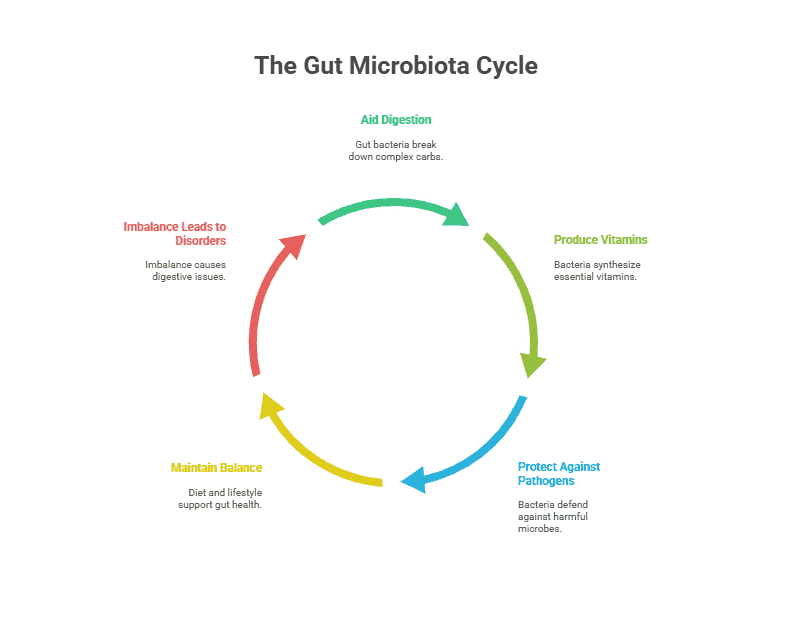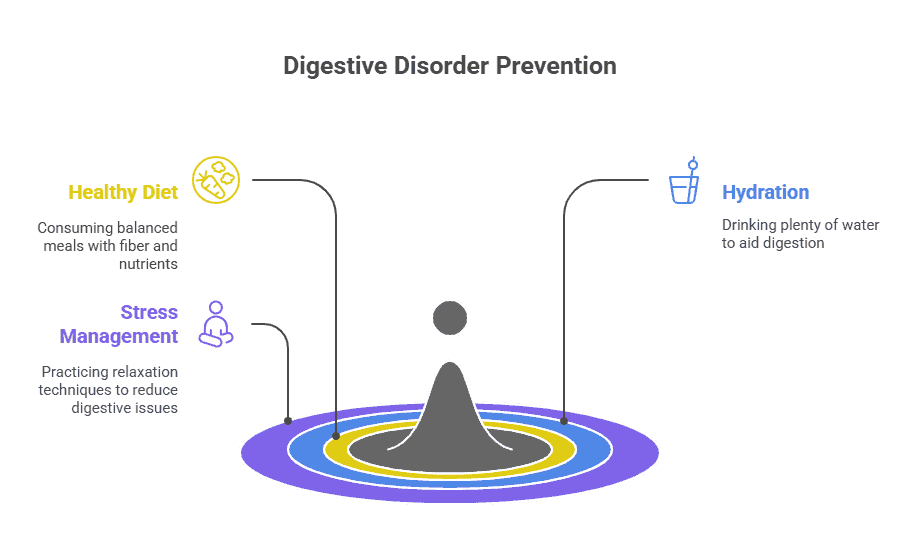The digestive system plays a crucial role in our overall health and well-being. It is responsible for breaking down food, absorbing nutrients, and eliminating waste from the body. However, there are various disorders and diseases that can affect the digestive system, leading to discomfort, pain, and other health issues.
1. Gastroesophageal Reflux Disease (GERD)
GERD is a common digestive disorder that occurs when the stomach acid flows back into the esophagus, causing a burning sensation in the chest known as heartburn. This condition can lead to inflammation of the esophagus and other complications if left untreated.
2. Irritable Bowel Syndrome (IBS)
IBS is a chronic condition that affects the large intestine and can cause abdominal pain, bloating, diarrhea, and constipation. The exact cause of IBS is unknown, but it is believed to be related to abnormal muscle contractions in the intestine and changes in the gut microbiome.
3. Crohn’s Disease
Crohn’s disease is a type of inflammatory bowel disease that can affect any part of the digestive tract. Symptoms include abdominal pain, diarrhea, weight loss, and fatigue. Crohn’s disease is thought to be an autoimmune disorder, where the immune system mistakenly attacks the healthy cells in the digestive tract.
4. Gallstones
Gallstones are hardened deposits that form in the gallbladder, a small organ located beneath the liver. These stones can block the flow of bile, leading to abdominal pain, nausea, and vomiting. Gallstones are more common in women and individuals who are overweight or have a high-fat diet.
5. Peptic Ulcers
Peptic ulcers are sores that develop in the lining of the stomach, small intestine, or esophagus. These ulcers can be caused by bacterial infection, long-term use of nonsteroidal anti-inflammatory drugs (NSAIDs), or excessive alcohol consumption. Symptoms of peptic ulcers include abdominal pain, bloating, and indigestion.
6. Celiac Disease
Celiac disease is an autoimmune disorder triggered by the consumption of gluten, a protein found in wheat, barley, and rye. When individuals with celiac disease eat gluten, their immune system attacks the lining of the small intestine, leading to malabsorption of nutrients. Symptoms of celiac disease include diarrhea, weight loss, and fatigue.
7. Diverticulitis
Diverticulitis is a condition where small pouches called diverticula form in the walls of the colon and become inflamed or infected. Symptoms of diverticulitis include abdominal pain, fever, and changes in bowel habits. Risk factors for diverticulitis include aging, obesity, and a low-fiber diet.
Summary
In conclusion, the digestive system is a complex system that can be affected by various disorders and diseases. Common digestive disorders include GERD, IBS, Crohn’s disease, gallstones, peptic ulcers, celiac disease, and diverticulitis. It is important to seek medical attention if you experience persistent digestive symptoms to receive an accurate diagnosis and appropriate treatment.
Key Takeaways:
- Common digestive disorders include GERD, irritable bowel syndrome, and ulcers.
- GERD is caused by the weakening of the lower esophageal sphincter, which allows stomach acid to flow back into the esophagus.
- Irritable bowel syndrome (IBS) is a gastrointestinal disorder characterized by abdominal pain, bloating, and changes in bowel habits.
- Ulcers are open sores that can develop in the lining of the stomach or small intestine, often caused by H. pylori bacteria or prolonged use of NSAIDs.
- Other digestive diseases include Crohn’s disease, ulcerative colitis, and celiac disease.
- Preventative measures for digestive disorders include maintaining a healthy diet, drinking plenty of water, and managing stress.
Key Terms:
- Gastroesophageal Reflux Disease (GERD): A chronic condition where stomach acid flows back into the esophagus, causing symptoms like heartburn and regurgitation.
- Peptic Ulcer Disease: Open sores that develop on the inner lining of the stomach or small intestine, often caused by H. pylori bacteria or the use of nonsteroidal anti-inflammatory drugs.
- Inflammatory Bowel Disease (IBD): A group of inflammatory conditions that affect the digestive tract, including Crohn’s disease and ulcerative colitis.
- Diverticulitis: Inflammation or infection of small pouches that can form in the walls of the colon, known as diverticula.
- Gallstones: Hardened deposits that form in the gallbladder, often made of cholesterol or bilirubin, and can cause pain and other symptoms.
- Celiac Disease: An autoimmune disorder where consuming gluten triggers an immune response that damages the lining of the small intestine.
- Pancreatitis: Inflammation of the pancreas, often caused by alcohol consumption, gallstones, or certain medications.
- Hepatitis: Inflammation of the liver, typically caused by a viral infection (hepatitis A, B, C, etc.) or excessive alcohol consumption.
- Lactose Intolerance: Inability to digest lactose, a sugar found in dairy products, due to a deficiency of the enzyme lactase.

